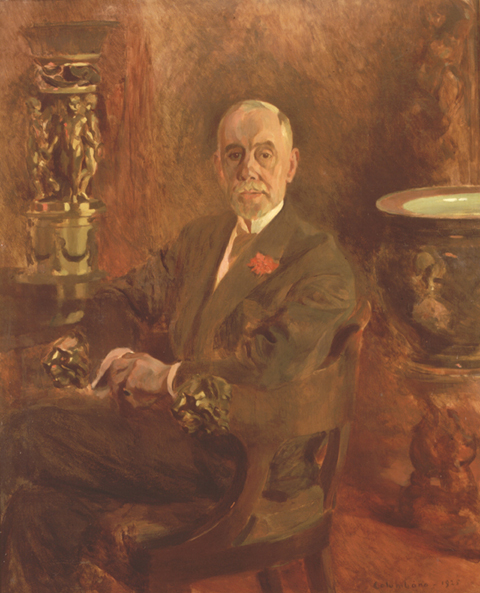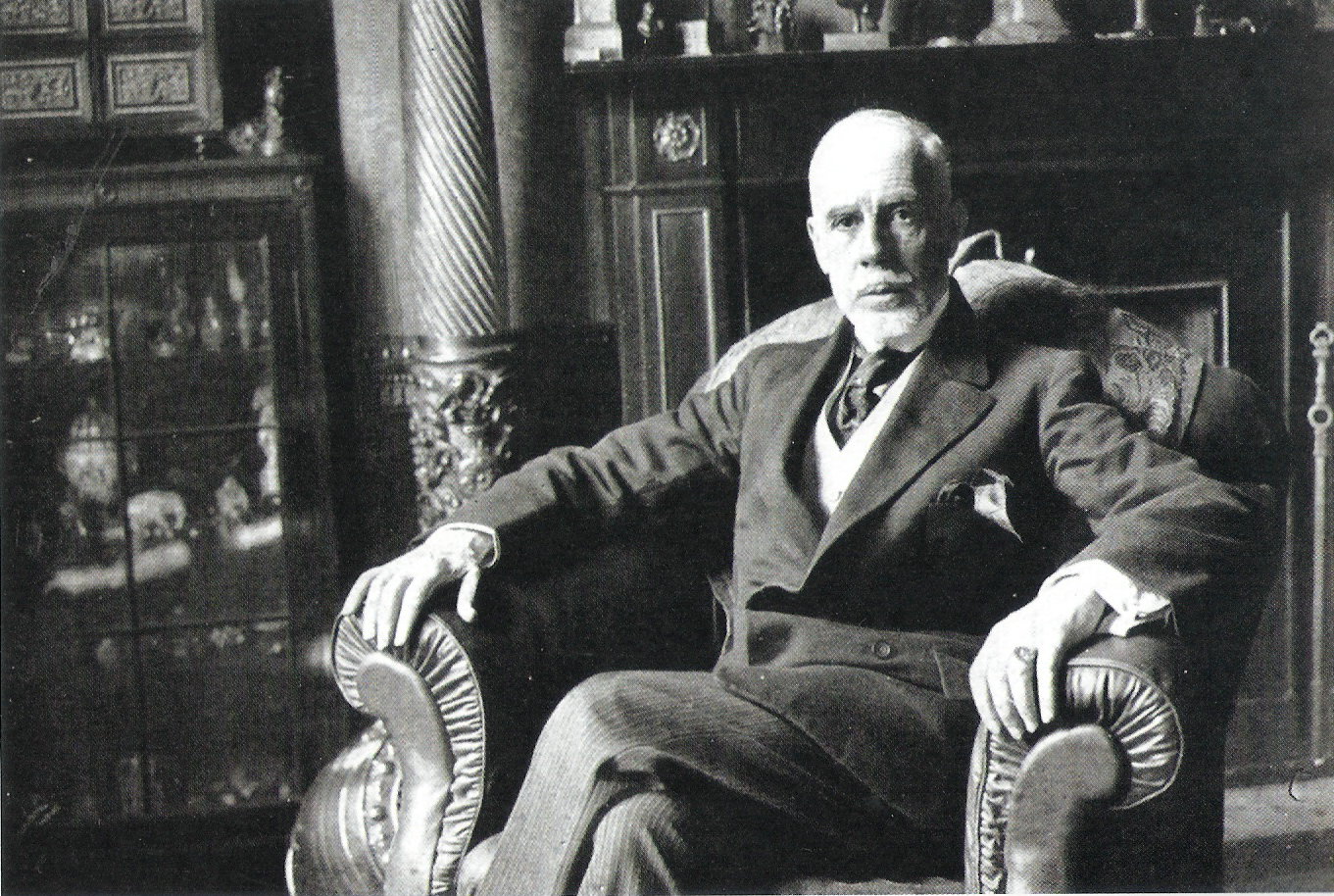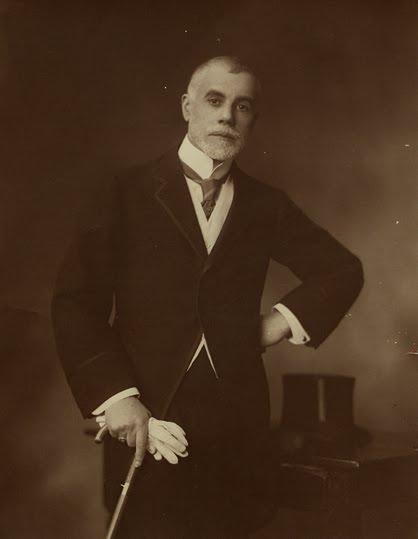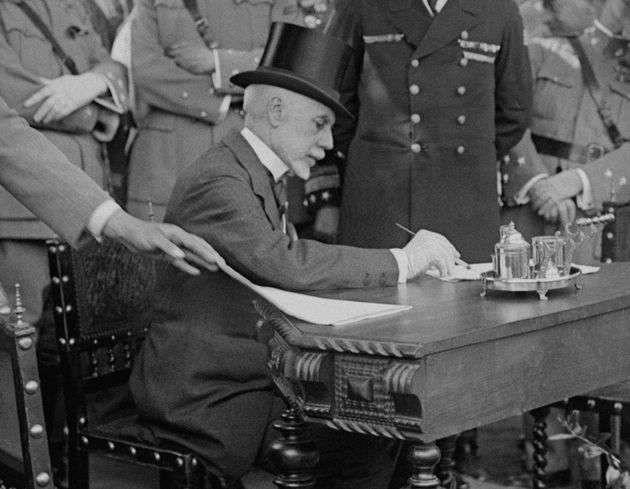<Back to Index>
- Physicist John Douglas Cockcroft, 1897
- Novelist Samuel Dashiell Hammett, 1894
- 7th President of Portugal Manuel Teixeira Gomes, 1860
PAGE SPONSOR


Manuel Teixeira Gomes, GCSE (Portimão, May 27, 1860 - Bougie, October 18, 1941) was a Portuguese politician and writer. He served as the seventh President of Portugal between 5 October 1923 and 11 December 1925.
Manuel Teixeira Gomes was born in Vila Nova de Portimão, son of José Líbano Gomes, born in Viseu, Mortágua, and wife (m. Lagoa, Ferragudo, February 21, 1854) Maria da Glória Teixeira, born in Lagoa, Ferragudo. A wealthy landowner, his father was also a large scale dried fruit trader, a much travelled man, who had been educated in France and witnessed the 1848 revolution, had republican leanings and had been Belgian Consul in Algarve.
Attended the Colégio de São Luís Gonzaga, Portimão, and the Coimbra seminary; at the age of 18 enrolled at the University of Coimbra to study medicine; abandoned studies two years later and moved to Lisbon, where he established closed ties with local intellectual circles (namely Fialho de Almeida and João de Deus). After completing military service, installed himself in Porto (1881), where he became friendly with Sampaio Bruno, Basílio Teles, Soares dos Reis and others. With Joaquim Coimbra and Queirós Veloso they published Gil Vicente, a theatrical newspaper. He also wrote for Primeiro de Janeiro and Folha Nova.
In 1891, his father and other partners had set up a company called "Sindicato de Exportadores de Figos do Algarve" (Algarve Fig Exporters Union), which lasted three years. Manuel was told to find markets in France, Belgium and Holland. He travelled extensively, toured Europe and lingered in Italy. He extended his cultural horizon by wandering through North Africa and Asia Minor.
The company was closed but father and son continued the business on their own. Soon their success meant that they had to enlarge their market to new areas that were familiar to them, North Africa and the Near East, but meant that Manuel had to travel nine months of the year, returning to Portugal only during the fig picking season.
After 1895 he established new contacts with the literary circles of Lisbon. Through Fialho de Almeida he met Marcelino Mesquita, Gomes Leal and others. Alfredo Mesquita, Luís Osório and António Nobre encouraged him to publish his first book, O Inventário de Junho, which came out in 1899.
Calmer now, and with more time, as his father’s advanced age forced him to spend longer periods in Portimão, he published Cartas sem Moral Nenhuma and Agosto Azul, in 1904, Sabrina Freire in 1905, Desenhos e Anedotas de João de Deus in 1907 and Gente Singular in 1909.
A convinced republican, he collaborated with the daily A Lucta published by Brito Camacho. Following
the implantation of the republic he was invited to be Portuguese
Minister in London. In April 1911 he travelled to England and presented
his credentials to King George V on 11 October, serving as an envoy to the United Kingdom (1911 – 1918). He
managed to ingratiate himself thoroughly with the British government
and especially with King George V; acted as principal negotiator for
all matters relating to Portugal. One should highlight his actions
concerning the problems of the Anglo - German negotiations on the
division of the Portuguese colonies and his collaboration with the
Portuguese governments with regard to Portugal joining the war at the request of Great Britain. Returned to Portugal in January 1918 and was put under house arrest during the dictatorship of Sidónio Pais; returned to diplomacy after the fall of the Sidonist regime; became envoy to Spain (1919) and then again to the United Kingdom (1919 – 1923); a member of the Portuguese Delegation at the Paris Peace Conference (1919 – 1920);
unsuccessful candidate of the Democratic Party (Partido Democrático) at the presidential elections of 6 Aug 1919 won by António José de Almeida; delegate to the League of Nations, serving as Vice-President of the General Assembly (6 Sep 1922 - 30 Sep
1922); was elected in-absentia President of the Republic (6 Aug 1923),
arriving at the port of Lisbon on 3 Oct 1923. During
his term Teixeira Gomes made unsuccessful attempts to combat terrorism;
suppressed at least four major revolts (1924 – 1925) organized by
radicals and the military; being constantly attacked by the
nationalists and unable to manage the political crises, he resigned the
office (11 Dec 1925) on the pretext of poor health; and went into
voluntary exile (17 Dec 1925). He traveled to Oran, Algeria, and never returned to Portugal. In 1931 he moved to Bougie, where he lived the rest of his life, always opposing the fascist Estado Novo regime. He had two natural daughters by Belmira das Neves (Portimão, August 5, 1886 - January 26, 1967), daughter of fisherman João
de Deus and wife Quitéria das Dores), named Ana Rosa Teixeira
Gomes, who was born in Portimão and married José Gualdino
Duarte Calapez, also born in Portimão, and Manuela Teixeira
Gomes, who was born on September 7, 1910 and married José Pearce
de Azevedo (b. and d. Portimão) and had issue. He intended to
marry her but his parents didn't allow him to do so.

